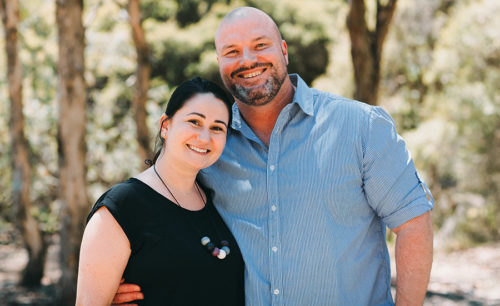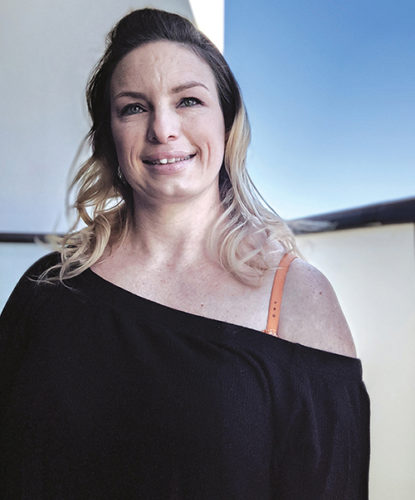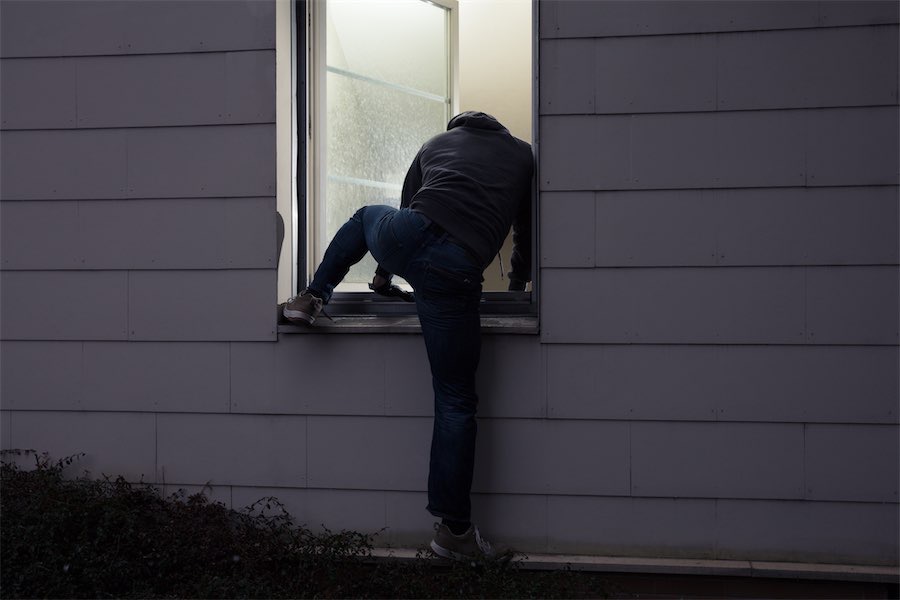Every child is one adult away from being a success story. Could you be the one? This is a sponsored post.
AS ACT Together celebrates Foster Care Week (September 8-14), and the invaluable support of foster carers in our community, regional manager Rebecca Jeffrey appeals to others who might consider becoming a foster carer.

“Every child is one adult away from being a success story. Could you be the one?” she asks.
“There is a growing body of evidence that suggests every child who winds up doing well has had at least one stable and committed relationship with a supportive adult.
“The power of that one, strong, adult relationship is a key ingredient in resilience, according to the Harvard Centre on the Developing Child.
“I think it’s a question we all should consider – whether we could be the one and give in this way to support our community’s most vulnerable.”
Rebecca admits that recruiting carers for Canberra’s most vulnerable children is a big challenge and the need for carers is great.
“We need more people to be the protectors, the nurturers, the ‘for now’ or the ‘forever’ mums and dads,” she says.
“ACT Together is a consortium of agencies established in 2006, that has been created to provide quality services for children and young people in out-of-home care… [It] is led by Barnardos Australia and we work with the Australian Childhood Foundation and Ozchild,” says Rebecca.
In the ACT there are more than 800 children living in out-of-home care due to issues of abuse or neglect. Rebecca says this shows that as a community we are vigilant and responsive to the needs of children and ensuring they are safe.
“From littlies to adolescents, we see great outcomes for children thanks to our foster carers,” says Rebecca.
Rebecca says that the options of fostering give carers more flexibility and choice.
“We work with people around their work and life commitments,” she says.
Many new foster carers will start out by providing respite care by caring for a child over a weekend, once a month for 12 months. Respite care gives kinship carers, who are usually grandparents caring long term for their grandchild, a weekend break.
Short term or crisis carers can care for children anywhere from one night to two years. These types of carers are crucial at the time of emergency action so need to be prepared on short notice to look after children and might even get a call in the middle of the night to help a vulnerable baby, toddler or teen. Concurrent care is where you are supporting restoration while also being committed to caring for a child permanently if restoration is not successful.
“However, when all options have been explored, and there is no alternative for restoration to their birth family, long-term foster care is a ‘forever’ commitment to a child,” she says.
There are currently around 60 children in the ACT needing long term foster carers.
Rebecca says carers tell her that fostering is life-changing.
“They tell me they wish they had fostered when they were younger. They say that they aren’t saints or superheroes, just people able to give a child a childhood experience and let them just be kids,” she says.
The application process to become a foster carer involves a three-day training course where carers are given information on trauma, and the impact it has on children, as well as parenting. There is also a series of interviews and compliance checks. Rebecca says the process can be as fast or slow as the carers want it to be.
“We work with the applicants on what type of care and the age group they want to foster, to fit into their family and circumstances,” she says.
Carers are eligible for a subsidy to support the cost of fostering a child. ACT Together has a carer support team and holds regular events and training sessions.
“Often people have thought about fostering but hadn’t given it the time to really think it through, or ruled it out as they think you have to only be available for crisis care, or you have to be in a relationship. That’s not the case, and I encourage people to get in touch with us to discuss,” says Rebecca.
Call 13 WEFOSTER to discuss foster care or find more information at acttogether.org.au

TAMARA & JASON / caring for teenagers
JASON, a correctional officer and social worker, and Tamara are married with children and stepchildren of their own. They are also foster carers to teenagers.
Q: Why do you foster teenagers?
Tamara: Providing care to teenagers has meant we are mentors or role models for the young people who have come into our home. We have had to be flexible in what type of care we provide them, based on the individual people.
Jason: The biggest thing for me has been being a mentor and showing them that there’s a good side to life and the sky is not going to fall down every day.
Q: Is it too late to foster teens?
Jason: I don’t think it’s ever too late to give someone care, respect and understanding. It’s never too late to change someone’s life. I think it’s great to provide a level of respect where they feel safe to talk.
Q: Why do you foster?
Tamara: The initial reasons for us to become foster carers were very different to the reasons why we are carers now. We see our role – as providing care to teenagers – as invaluable. It also gives us so many rewards in our day-to-day lives.
JENNIFER / caring for kids in crisis

JENNIFER has fostered children in different types of care arrangements – from weekend respite to long term. She has cared for her 21-month old foster child in a long-term arrangement since she was a newborn and continues to provide crisis care for other children.
Q: What has foster caring given to you?
Jennifer: It has given me a family. As a single person, all I really wanted was a family of my own, but I had limited options. Through fostering I got my family but it also enabled me to help the community as well.
Q: What was the application process like?
Not as daunting as I thought it would be! It was a lot easier than I imagined. I went to an information session and then stepped through the paperwork and checks. I attended a training course and continue to receive support from my carer-support person.
Q: Do you think perceptions about fostering are changing?
I hear people say that they couldn’t foster as they would get too attached to the children. But you are meant to! Family is a fluid concept in this day and age, I think we need to challenge our personal views on what family is. If you are single, or can’t have children naturally, fostering is another way for you to have a family. Think about what you want and what you can offer – as you can change someone’s world and give a child a future.

LYNN / caring for a child with a disability
LYNN is currently providing foster care to a child with a disability.
Q: What made you decide to foster?
Lynn: I was over 50 when I started and had four grown children of my own. I had always wanted to give back to the community, I knew there were kids out there who needed loving homes and I was confident enough, even as a single mum, to think that I could provide that. I get such a buzz out of seeing the kids and young people feel more confident in themselves. It’s one of the most satisfying things I’ve ever done.
Q: Do you have to foster lots of children?
Don’t think as I did that you’ve got to have a dozen, 20 or 30 children. You only have to make a difference in one child’s life – one child at a time. So don’t let the fear of having hordes of children in your home put you off becoming a carer. You only need to think about that one child that’s out there, looking for a loving home. And maybe it’s you.
Q: What’s your message to those considering becoming a foster carer?
Never think you don’t have what it takes to become a foster carer. Because if I can do it, trust me, so can you.

STACEY & SARAH / caring for a baby girl
COMMUNITY-SECTOR shift worker Stacey and social worker Sarah are married and currently providing long-term care for a baby girl. In the past they have also been concurrent foster carers, working alongside the birth families to best support the children they have cared for.
Q: What is concurrency care?
Concurrency care is essentially when you are asked to love a child as restoration is explored and if not successful, provide a family and a home for that child forever.
Sarah: It’s really tough when kids leave, when you’ve been asked to make a commitment forever to the child, and you have to trust the system and you have to trust that that’s the right decision for the child.
Q: Why do you foster?
Stacey: We foster because we had reached a time in our life, we were married and we were thinking about a family and we thought about all the different options. Obviously the natural options aren’t quite as easy for us.
Q: What’s an important part of fostering?
Sarah: I think it’s so important to be open minded. Essentially, you’re opening your whole life to a family that you’ve never met, to a child that will be placed with you with maybe ten minutes’ notice, with no preparation, and you just have to roll with it. I think it’s tough, so you have to be committed and you have to be ready to do it.
Stacey: It actually doesn’t matter what background you’re from. It’s your commitment to the child, and if you want to be a foster carer, try it!
Who can be trusted?
In a world of spin and confusion, there’s never been a more important time to support independent journalism in Canberra.
If you trust our work online and want to enforce the power of independent voices, I invite you to make a small contribution.
Every dollar of support is invested back into our journalism to help keep citynews.com.au strong and free.
Thank you,
Ian Meikle, editor




Leave a Reply